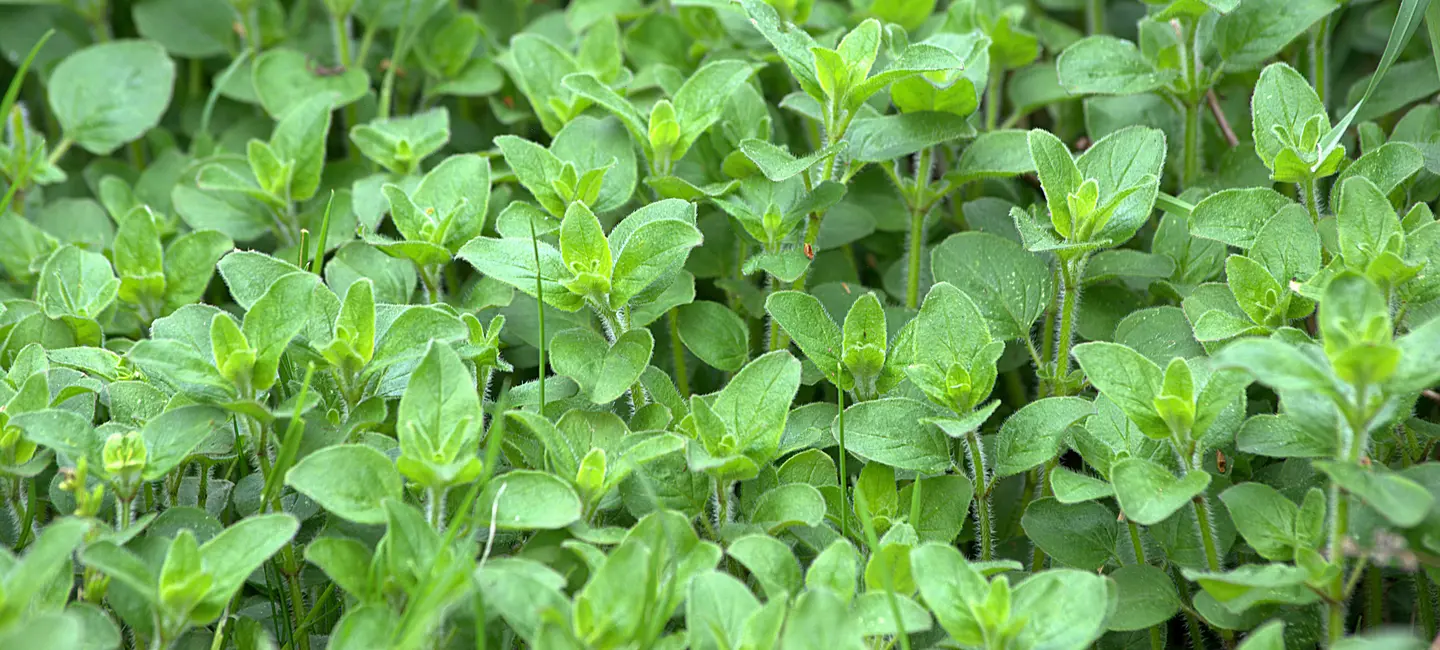
Oregano (Origanum vulgare) is an herb used to flavor foods. It is considered safe in common food amounts, but has little evidence of health benefits.
Oregano has olive-green leaves and purple flowers. It is closely related to other herbs, including mint, thyme, marjoram, and basil. Oregano contains chemicals that might help reduce cough. Oregano also might help with digestion and with fighting against some bacteria and viruses.
People use oregano for wound healing, parasite infections, and many other conditions, but there is no good scientific evidence to support these uses.
Is It Effective?
There is interest in using oregano for a number of purposes, but there isn't enough reliable information to say whether it might be helpful.
Is it Safe?
When taken by mouth: Oregano leaf and oregano oil are likely safe when eaten in foods. There isn't enough reliable information to know if oregano is safe to use in amounts greater than those found in food. Mild side effects include stomach upset.
When applied to the skin: There isn't enough reliable information to know if oregano oil is safe to apply to the skin. It may cause irritation when applied in concentrations greater than 1%.
Special Precautions & Warnings:
Pregnancy: Oregano is possibly unsafe when taken by mouth in medicinal amounts during pregnancy. There is concern that taking oregano in amounts larger than food amounts might cause miscarriage. Stay on the safe side and stick to food amounts.
Breast-feeding: There isn't enough reliable information to know if large amounts of oregano are safe to use when breast-feeding. Stay on the safe side and stick to food amounts.
Allergies: Oregano can cause reactions in people allergic to Lamiaceae family plants, including basil, hyssop, lavender, marjoram, mint, and sage.
Surgery: Large doses of oregano might increase the risk of bleeding. People who use large doses of oregano should stop taking oregano 2 weeks before surgery.
Medications for diabetes (Antidiabetes drugs)
Interaction Rating=Moderate Be cautious with this combination.
Oregano might lower blood sugar levels. Taking oregano along with diabetes medications might cause blood sugar to drop too low. Monitor your blood sugar closely.
Medications that slow blood clotting (Anticoagulant / Antiplatelet drugs)
Interaction Rating=Moderate Be cautious with this combination.
Oregano might slow blood clotting. Taking oregano along with medications that also slow blood clotting might increase the risk of bruising and bleeding.
Copper: Oregano might decrease the absorption of copper into the body. But it isn't clear if this is a big concern.
Herbs and supplements that might lower blood sugar: Oregano might lower blood sugar. Taking it with other supplements with similar effects might lower blood sugar too much. Examples of supplements with this effect include aloe, bitter melon, cassia cinnamon, chromium, and prickly pear cactus.
Herbs and supplements that might slow blood clotting: Oregano might slow blood clotting and increase the risk of bleeding. Taking it with other supplements with similar effects might increase the risk of bleeding in some people. Examples of supplements with this effect include garlic, ginger, ginkgo, nattokinase, and Panax ginseng.
Iron: Oregano might decrease the absorption of iron into the body. But it isn't clear if this is a big concern.
Zinc: Oregano might decrease the absorption of zinc into the body. But it isn't clear if this is a big concern.
There are no known interactions with foods.
Fresh and dried oregano leaf and oregano oil are commonly eaten in foods. As a supplement, there isn't enough reliable information to know what an appropriate dose of oregano might be. Keep in mind that natural products are not always necessarily safe and dosages can be important. Be sure to follow relevant directions on product labels and consult a healthcare professional before using.
Carvacrol, Dostenkraut, European Oregano, Huile d'Origan, Marjolaine Bâtarde, Marjolaine Sauvage, Marjolaine Vivace, Mediterranean Oregano, Mountain Mint, Oil of Oregano, Oregano Oil, Organy, Origan, Origan Européen, Origani Vulgaris Herba, Origano, Origanum, Origanum vulgare, Phytoprogestin, Spanish Thyme, Thé Sauvage, Thym des Bergers, Wild Marjoram, Winter Marjoram, Wintersweet.
Information on this website is for informational use only and is not intended to replace professional medical advice, diagnosis, or treatment. While evidence-based, it is not guaranteed to be error-free and is not intended to meet any particular user’s needs or requirements or to cover all possible uses, safety concerns, interactions, outcomes, or adverse effects. Always check with your doctor or other medical professional before making healthcare decisions (including taking any medication) and do not delay or disregard seeking medical advice or treatment based on any information displayed on this website.
© TRC Healthcare 2024. All rights reserved. Use and/or distribution is permitted only pursuant to a valid license or other permission from TRC Healthcare.
